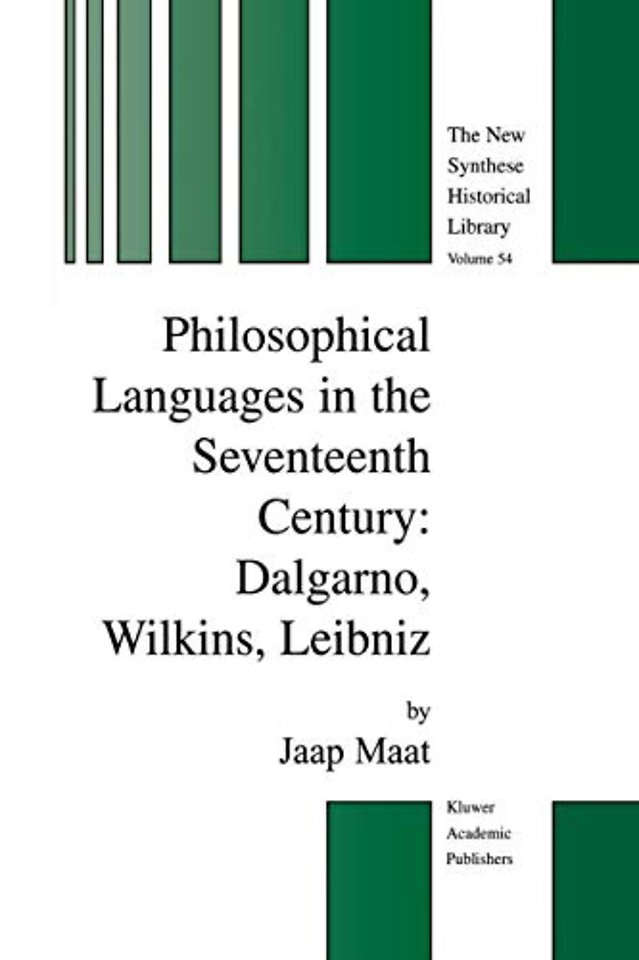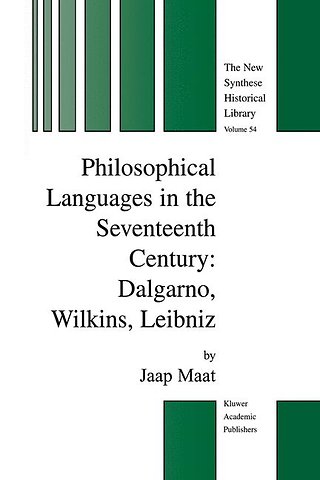Philosophical Languages in the Seventeenth Century
Dalgarno, Wilkins, Leibniz
Paperback Engels 2012 9789401037716Samenvatting
This book discusses three linguistic projects carried out in the seventeenth century: the artificial languages created by Dalgamo and Wilkins, and Leibniz's uncompleted scheme. It treats each of the projects as self contained undertakings, which deserve to be studied and judged in their own right. For this reason, the two artificial languages, as well as Leib niz's work in this area, are described in considerable detail. At the same time, the characteristics of these schemes are linked with their intellectual context, and their multiple interrelations are examined at some length. In this way, the book seeks to combine a systematical with a historical ap proach to the subject, in the hope that both approaches profit from the combination. When I first started the research on which this book is based, I intended to look only briefly into the seventeenth-century schemes, which I assumed represented a typical universalist approach to the study of lan guage, as opposed to a relativistic one. The authors of these schemes thought, or so the assumption was, that almost the only thing required for a truly universal language was the systematic labelling of the items of an apparently readily available, universal catalogue of everything that exists.
Specificaties
Lezersrecensies
Inhoudsopgave
1: Introduction.
2: The Background. 2.1. A new era. 2.2. Aspects of the intellectual context. 2.3. Plans and projects: universal writing. 2.4. Proposals for a philosophical language.
3: Dalgarno: the Art of Signs. 3.1. Introduction. 3.2. A universal character and a philosophical language. 3.3. The emergence of the philosophical language. 3.4. The lexicon of the philosophical language. 3.5. The grammar of the philosophical language. 3.6. Concluding remarks.
4: Wilkins: the Art of Things. 4.1. Introduction. 4.2. Aims and principles. 4.3. The tables. 4.4. The lexicon. 4.5. Natural grammar. 4.6.Concluding remarks.
5: Leibniz: the Art of Thinking. 5.1. Introduction. 5.2. the art of combinations. 5.3. Plan and purpose of the philosophical language. 5.4. Words, ideas, things. 5.5. Preliminary studies. 5.6. Leibniz, Wilkins, Dalgarno.
6: Concluding Remarks.
References. Index.
Rubrieken
- advisering
- algemeen management
- coaching en trainen
- communicatie en media
- economie
- financieel management
- inkoop en logistiek
- internet en social media
- it-management / ict
- juridisch
- leiderschap
- marketing
- mens en maatschappij
- non-profit
- ondernemen
- organisatiekunde
- personal finance
- personeelsmanagement
- persoonlijke effectiviteit
- projectmanagement
- psychologie
- reclame en verkoop
- strategisch management
- verandermanagement
- werk en loopbaan

